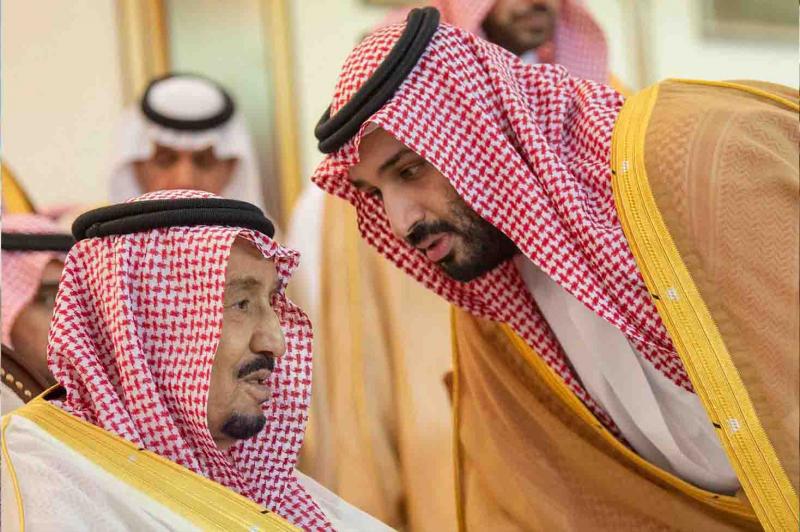Arab states exercise restraint as US-Iran tensions simmer
Despite bellicose statements from the United States and Iran, neither side wants a war that could undermine regional security and upend the oil market. Saudi Arabia and its Arab allies feel the same way.
Despite all parties’ interest in avoiding war, many have locked horns and added fuel to the fire, heightening the risk of igniting an unintended conflict. This is true of everyone except Saudi Arabia and its Arab allies, which have displayed remarkable restraint in the face of military threats.
Even after enduring attacks on its oil installations by Iran-backed Houthis, Riyadh played it cool. Abu Dhabi, after seeing ships sabotaged near the Fujairah coast, did the same.
While their reactions were depicted by Iran and Qatar as signs of weakness, they were, in fact, impressive displays of statesmanship, based on cooperation and respect for their allies and partners in the region.
Indeed, unlike Tehran, Arab countries have conducted themselves responsibly, uniting to defend their interests and refusing to engage in useless provocation.
Iran, with its image tarnished across the world, is bent on dragging Saudi Arabia and its partners into a dirty game of attacks and counter-attacks. Such a game, Iranians know, can blur the lines between right and wrong and victim and aggressor, giving Tehran a greater advantage.
Arabs understand that Tehran’s provocations are meant to escalate its showdown with Washington and that any immediate response could push the region towards undesirable consequences. For them, the Iranian regime is already isolated, at home and abroad, and the equation should remain the same to ensure it continues to face the same amount of pressure.
Arab countries are satisfied with Iran’s status and have no desire to shake things up. Any change could provide Iran with a glimmer of hope and ease the pressure on its crumbling regime and potentially salvage its crumbling economy, issues the regime is trying to divert from by provoking its regional nemeses.
This is nothing new. Since the founding of the Islamic Republic in 1979, Iran’s mullahs have frequently provoked other nations and engaged in foreign conflicts to advance their revolution, no matter the cost in lives and resources. This was seen in the Iran-Iraq War (1980-88), Iran’s involvement in the Syrian civil war and its support of Shia militias in Iraq, Lebanon, Yemen, Bahrain and elsewhere.
The trend shows that the Iranian regime is not only a threat to Arab countries but a direct menace to its own people. Today, some 80 million Iranians struggle to make ends meet. They have seen their currency depreciate to beyond 148,000 rials to the US dollar, with many losing their life’s savings. The unemployment rate is 12% nationwide and up to 25% for youth, the Statistical Centre of Iran said.
With this in mind, Saudi Arabia and its allies have exercised restraint. Their enemy is the Iranian regime and its militias, not the Iranian people, who risk paying for their government’s blunders if the situation spirals out of control.
This shows that we are dealing with two different models. One is a criminal state bent on launching attacks by proxies, militias and sleeper cells to undermine regional security and expand its influence. The other respects the interests of regional allies and partners and steers clear of rogue practices and criminal dealings.
Arab states could also be showing restraint because they understand Iran’s strategy not as an attempt to ignite war but merely to gain leverage with Washington in future negotiations.
If this strategy worked for the North Koreans in dealing with the United States in 2017, it won’t necessarily yield the same results for Tehran, which has created a longer list of regional adversaries.
Still, for Arab countries, restraint remains the wisest option. It not only shows their desire to spare the Arabian Gulf region the dangers of war but reflects a more sophisticated understanding of regional dynamics, including the relationship between Iran and the United States.
However, restraint does not necessarily mean inaction. Saudi moves show that the kingdom is ready to put up a united front against Iranian aggression, specifically against the “war on oil” doctrine that was first adopted in 2005.
We have seen this strategy play out with attacks on tankers, the targeting of oil installations in neighbouring countries and a recent claim by the Islamic Revolutionary Guard Corps to have complete control over Gulf waters north of the Strait of Hormuz, through which about one-fifth of the global oil supply flows.
The threat should be a source of concern for all countries, not only Saudi Arabia, hence the need for a united front. It is within this context that the kingdom has invited Arab and Gulf leaders to a series of emergency summits May 30 in Mecca.
These meetings will be critical to coordinating foreign policies, cementing alliances and addressing Iran’s aggressive behaviour.
Iman Zayat is the Managing Editor of The Arab Weekly.
This article was originally published in The Arab Weekly.






